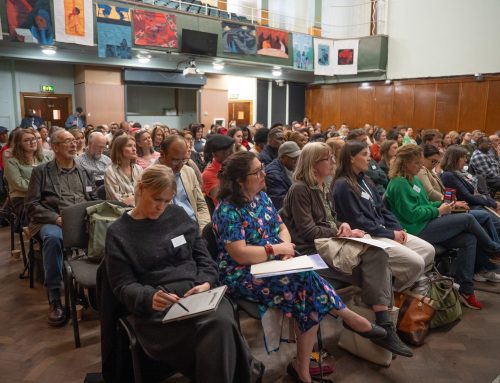At this year’s Sanctuary in Parliament event, we were grateful for an opportunity to speak about the impact and extent of destitution to a room of City of Sanctuary group representatives and parliamentarians.
Dave shared an update from NACCOM on the rising demand for accommodation support and how the network has responded in the last year. For more on this please read our annual report.
Stanford, a Zimbabwean refugee and case worker at Communities and Sanctuary Seekers Together (a NACCOM Member based in Southend), shared some of his own, and others, experiences of seeking asylum. He also took some time to identify and engage with several MPs on the day and wrote afterwards: ‘It’s positive that we engaged them and they have an obligation to respond to our pleas‘, although he was also keen to stress that any response needs to be more than paying ‘lip service to the plethora of issues faced by asylum seekers‘.
For more on follow-up action visit the City of Sanctuary page.
Below is a summary of some of Stanford’s experiences since arriving in the UK a decade ago. Our thanks to him for sharing this.
Stanford is a Zimbabwean refugee who sought asylum in the UK with his 10 year old daughter in March 2006, when he was aged 36. Stanford experienced a ‘shattering of confidence’ due to the hostility he faced from the Home Office when he first went to make his claim. It was also at this point that Stanford realised that he was not allowed to work, despite the fact that he was an overseas qualified teacher from Zimbabwe, a former British colony.
At that time, Stanford’s brother, Tendai Biti, was the Zimbabwean finance minister in the Government of National Unity and the Secretary General of Zimbabwe’s biggest opposition political party, the MDC. As such, Stanford had a clear, straight forward asylum case, yet it took the Home office more than three years to come up with a decision after his substantive asylum interview.
Because of his concerns about the quality of initial accommodation and risks to his daughter’s stability if they were relocated far away, Stanford made the decision not to apply for NASS support but instead stayed with family members in Southend. This was not an easy situation for anyone as there was overcrowding in the house and very little privacy.
After some time, his community supported him financially to move into a privately rented property, but here the landlord took advantage of his lack of status and regularly locked him out. One time, Stanford was locked out for 3 weeks and had to sleep in a nearby underpass for this time.
After being granted refugee status in September 2009, Stanford went back to university and decided to pursue a career in community development. He continued to live in Southend, which despite not being a dispersal area still receives some destitute asylum seekers. Stanford explains that this is largely because of community connections, yet there are no statutory services set up to support this group.
In response to this growing need, in 2011, Stanford helped to establish CAST (Communities and Sanctuary Seekers Together), a refugee community organisation working to prevent destitution and homelessness of asylum seekers and migrants with No Recourse to Public Funds in Southend. The group runs a hosting scheme, and Stanford works for the project as a case worker.



